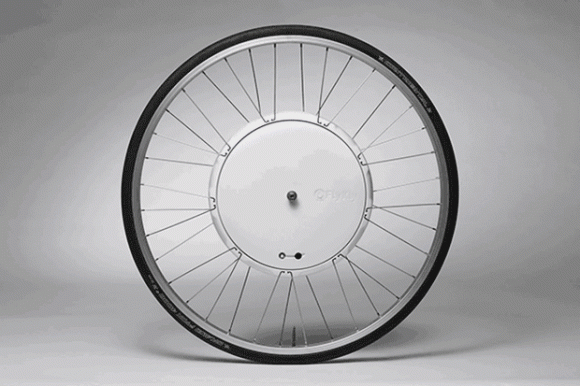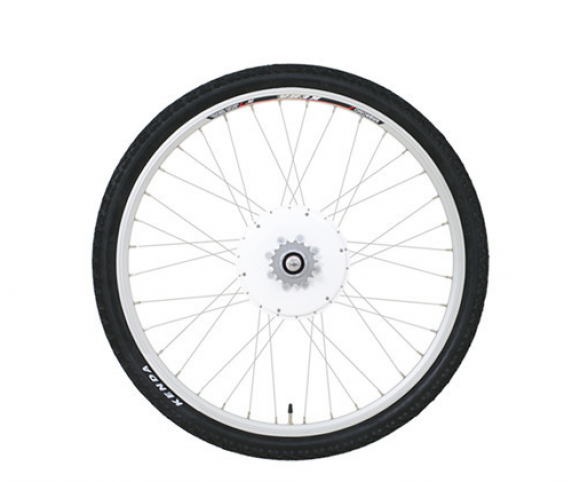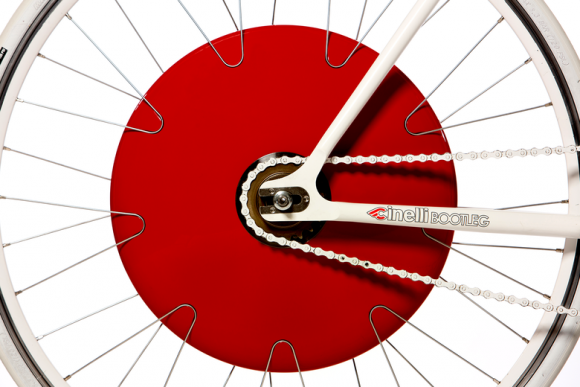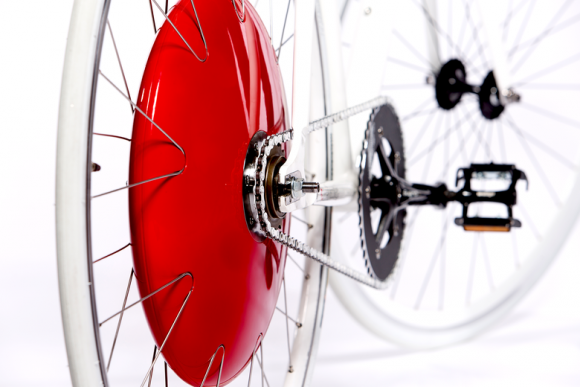An Update On The Great Copenhagen Vs. Flykly Electric Bike Wheel Debate: Where are they now?
Over a year ago, we made a blog post about two new electric bike wheels being produced that bore a striking resemblance to each other: The Copenhagen Wheel and the FlyKly Smart Wheel.
While we often see products being released that are almost identical to competitor's products, rarely are they as inventive and as highly anticipated as these wheels were at the time. This tidbit made it a bit peculiar as to how two almost identical wheels could be racing each other to get on the market without one being a complete copy of the other.
When we made our original blog post, the story we heard was that Niko Klansek, the creator of the FlyKly wheel, had visited the lab at MIT, where the Copenhagen Wheel was being worked on to "check things out." Shortly after, as the Copenhagen Wheel team was preparing to release their wheel, the nearly identical FlyKly wheel appeared in a kickstarter campaign.
Though this hasn't appeared since then to be an incorrect overview of the situation, there is a bit more history to take into account and things have changed since then, so, here's an update using unformation we've gathered from scouring the web, and comments on our blog post and FlyKly kickstarter page:
So, first off, the idea of these electronic bike wheels that was being presented as 'new' when this debate first started is a bit skewed. In fact, it is the technology of the wheels, not their concept, that is new. The original motives behind designing the Copenhagen Wheel were to transmit health and gps information about the city and rider. The idea of propelling the bike using batteries came later, and was most likely included as a selling point pushed by investors. This makes sense since now, when these wheels are being discussed, that is the main talking point.
Now, on to FlyKly. Niko Klansek used to work in the e-bike industry and apparently visited MIT to see how far away the product was from being ready to be sold. In his visit, he noticed there was still debate over whether to make the wheel powered. It is supposedly becoming aware of this that led to the FlyKly kickstarter.

FlyKly Original Design
The FlyKly kickstarter itself changed the direction of the wheel's development and made the focus on powering the wheel over sensors.
A race to get the wheels on the market was born.
Though this can easily be written off as sheisty business techniques, it has resulted in benefits for us consumers: the competition is causing price to go down while technology gets better.
So, what's the deal now?

FlyKly Wheel Currently For Sale
FlyKly: after some delays, downgrades, and help with new designs, some FlyKly wheels finally started shipping out in November of 2014. The wheel is much smaller than the original design, which means less room for batteries, and therefore a smaller range (about 25-30km according to an owner of the wheel). This also requires more recharging than originally anticipated, and replacement for a charger can run up to $171 US. However, people who have received the wheel are happy and find it to assist quite well on uphills. With that being said, there seems to be even more people who have still not received anything from FlyKly, despite backing the kickstarter over a year ago. In addition to still not having received anything, they are finding it incredibly difficult to get in contact with the company regarding the issues. So, it seems, if you are lucky enough to get your hands on a FlyKly wheel, you'll like it, but don't hold your breath.

Copenhagen Wheel
Copenhagen Wheel: continuous updates to the design of the Copenhagen Wheel have delayed its commercial release. These updates can be heard about in detail in the Copenhagen Wheel Product Development Update video at the top of this page. Just weeks ago were the first test rides of the commercial product, and the wheel is available for preorder at just under $1000.

Copenhagen Wheel Available for Presale
And that's the update. While FlyKly got their product out quicker, it seems like their business model may be hurting them in the long run. Though the Copenhagen Wheel has been designed and redesigned, it seems all the effort will truly make their product one of a kind.
